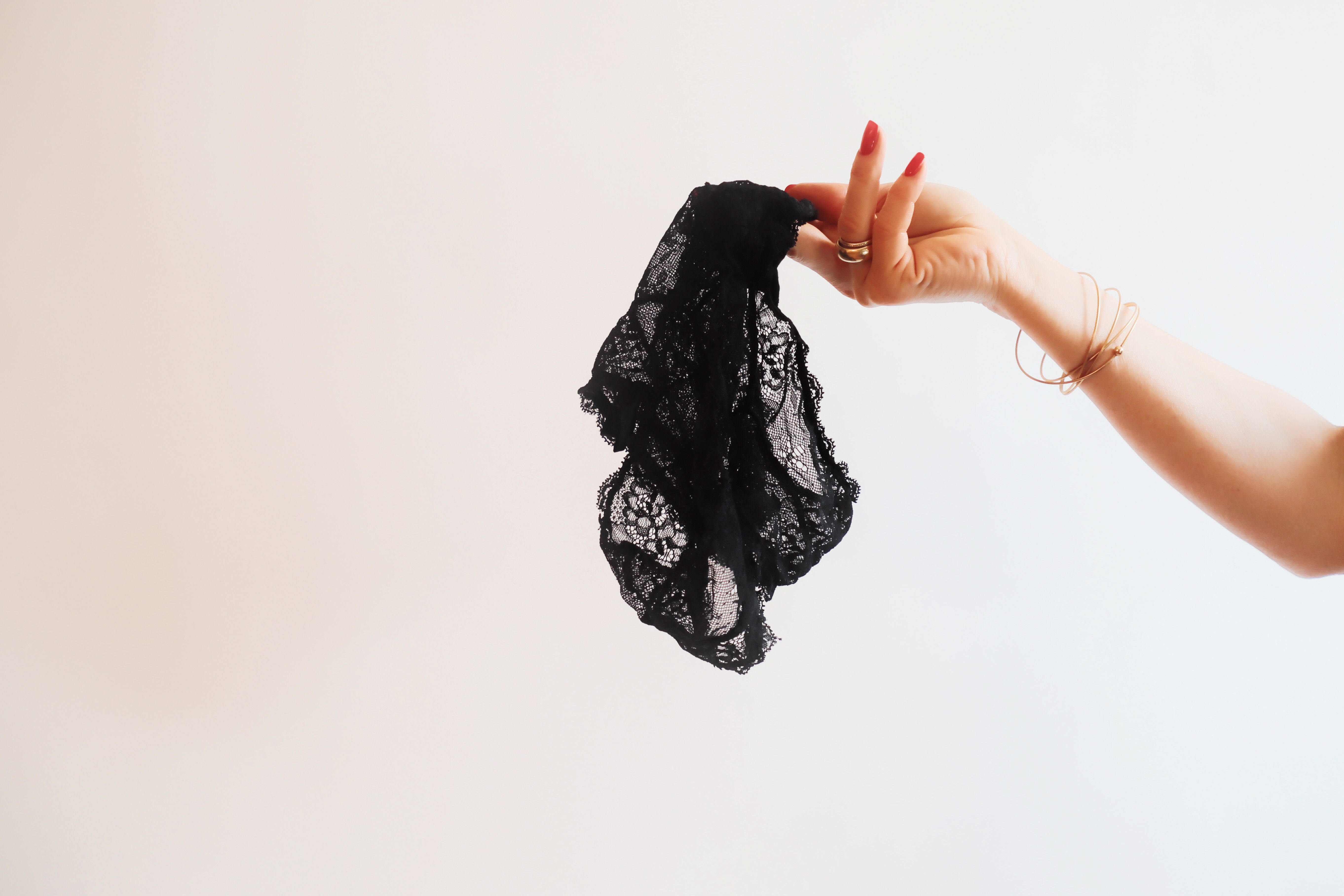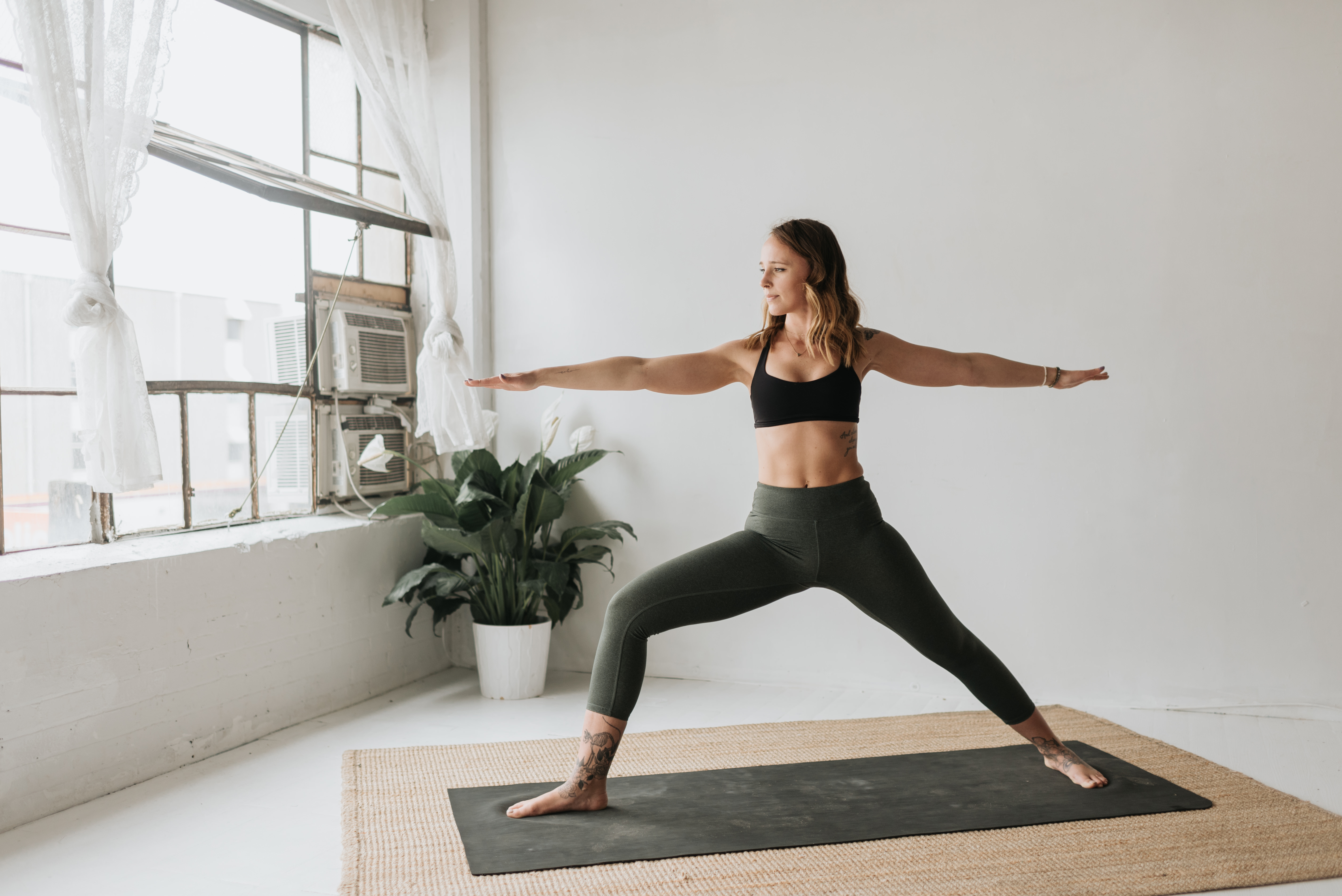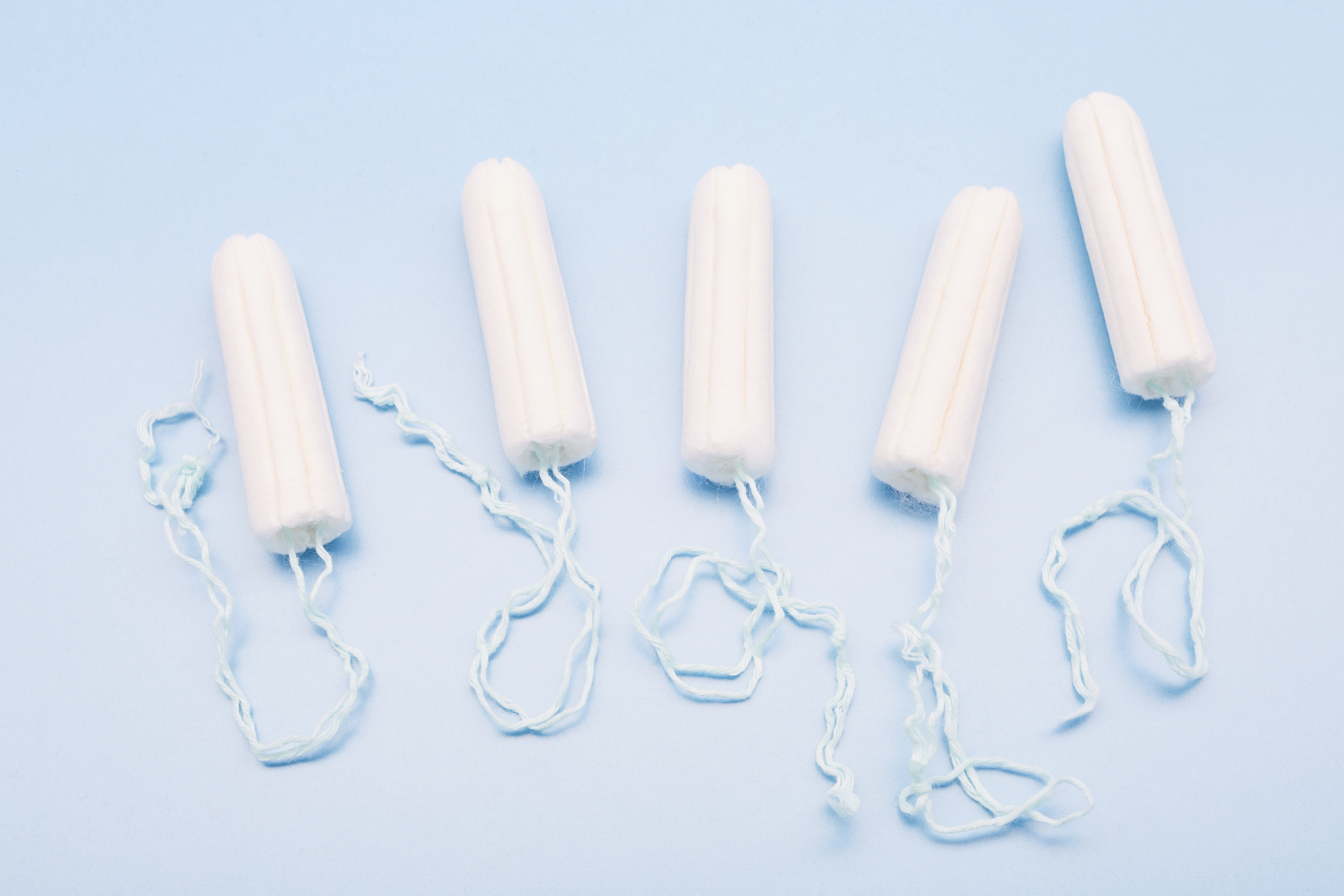
Celebrity news, beauty, fashion advice, and fascinating features, delivered straight to your inbox!
You are now subscribed
Your newsletter sign-up was successful
Care advice for during your period, after sex and post-birth, too.
Turns out, vaginal care doesn't just mean careful investment in one of the best sex toys. (Though that certainly helps, too.) No, we're talking the key care tips that will ensure you're UTI, STI, and shaving rash-free, and that everything is ticking over as it should be down there.
According to doctor Shree Datta, gynaecologist for intimate wellbeing brand INTIMINA, your vagina has its own microbiome or 'climate', and the bacterial balance of said microbiome can have a major impact on your health.
"Your vaginal health can impact both your quality of sex and fertility. While we don't know the full extent of all the health risks, the products you use - for example, some lubricants, talc, vaginal cleansing soaps or deodorants (read our guide to the best lube, here) - can lead to a higher risk of urinary tract, bacterial or sexually transmitted infections, and are thought to disrupt the vaginal bacterial balance."
But, question: what are the basics when it comes to looking after your downstairs, and are there any big no-no's - we're looking at you, fragranced soap - to avoid?
To get expert-led answers, we've asked three female health experts for their tops tips for vaginal care. Think wearing cotton underwear, going to the toilet after sex and more.
Vaginal care: 18 key ways to look after your down there
1. Don't over-perfume
According to gynaecologist Tania Adib, generally it's not advisable to over-perfume the vagina - so try and avoid heavy scented or overly fragrant body washes.
"Keep it simple," she advises. "It’s important to remember that the vagina itself is self-cleaning - the mucous discharge all women have does the job of keeping it healthy and clean. Many of these heavily scented feminine fresh style products can disrupt the natural pH balance of the vagina."
Celebrity news, beauty, fashion advice, and fascinating features, delivered straight to your inbox!
Try this: use unperfumed soaps or very lightly scented body washes when washing your vulva and vagina, recommends the gynae.

2. Workout what works for you
Did you know? Even products like scented toilet paper can be an irritant, according to Adib, as can sanitary towels and tampons.
Try this: Working out what irritates your down there and subsequently cutting it out is the best course of action. If pads are an irritant for you, things like period cups may be a good alternative.
3. Opt for cotton
Adib also advises clueing yourself up on what exactly your underwear and sanitary products are made from - and avoiding the lacy and scented, where possible.
"Don't underestimate the benefits of wearing loose cotton underwear - synthetic thongs grating against your vulva and vagina can lead to irritation and soreness in a short period of time," explains doctor Deborah Lee of Doctor Fox Online Pharmacy.
Try this: "Try and use unscented sanitary products - ideally organic cotton. I recommend Callaly, who have a range of organic cotton sanitary products, pads, tampons and panty liners, too," shares Adib.
Callaly Organic Tampliner, £8.88 for 16
4. Pee after sex
FYI, after sex, the most important thing you can do is go for a wee, according to the gynaecologist.
"This is especially important if you are prone to Urinary Tract Infections (UTIs)," she shares, "as it helps to flush out the problematic bacteria that causes them from the urethra."
Try this: Make a habit of getting up and going to the toilet after your session - even if you haven't tried a full blown penetrative sex position, but instead, just done a little foreplay or used your favourite sex toys. Cleaning the area significantly reduces your chances of getting a UTI.
5. Avoid tight clothing
Vaginal health issues, like UTI's, can exacerbated by wearing tight clothing, shares Adib.
Try this: if you workout regularly or have a job that involves wearing tight fit leggings regularly, she recommends opting for breathable fabrics, where possible. "Sweating in the vulva area can cause bacterial infections," she explains.

6. Avoid feminine hygiene sprays
Or so says doctor Deborah Lee. They're largely unnecessary and a waste of money, as your vagina self-cleans itself.
7. Wipe front to back when you pee
This has been shown to reduce the chance of urinary tract infections, shares doctor Lee, as you're less likely to contaminate your vagina with any feces (you want it to be moving away from your urethra as much as possible FYI).
Try this: Make a mental note to try and switch up the way you wipe, if you're a back to front-er - it's best practice and puts you at a reduced risk of infections. It's one of the simplest ways to practice vaginal care.
8. Use an adequate lubricant when you have sex
There are loads of great lubricants on the market, according to doctor Lee - our round up of the best lubes might help you choose which type and brand is for you.
"Lube can really help reduce friction and trauma to the vaginal epithelium," the doctor explains. "It can also help sex to feel comfortable and be more enjoyable."
Try this: Opt for a non-perfumed lube to start with, and then build up to experimenting with more exotic blends, should you wish.
HANX water-based, paraben-free lube, £14.99
9. Take care to have safe sex
This means using a condom carefully with any new sexual partner and having regular STI testing, explains doctor Lee.
"STI’s can affect people of any age, and although they are most common in those aged 25 and under, the biggest increase in infection rates in recent years have been in older people over age 50," she shares.
Scarily, most STI’s are asymptomatic, so you'll only know you have one if you go and get tested. The quicker an STI is diagnosed, the better the outcome for you, stresses the doctor.
Do read up on the most obvious HPV symptoms in women, while you're here.
10. Don’t forget to do your pelvic floor exercises
According to Doctor Lee, all women should do daily pelvic floor exercises.
"The pelvic floor is the sling of muscle between your hip bones that supports your uterus, ovaries, bladder, and vagina," shares Lee. "These muscles need to be strong and in good working order for proper pelvic and sexual function. When they start to fail this leads to incontinence, uterine prolapse and also prolapse of the vaginal walls," she shares.
Try this: try and incorporate pelvic floor exercises into your daily routine, and if you're not sure where to start, head to the NHS website's guide to pelvic floor exercises for more information.

11. Avoid internal douching
Internal douching with harsh chemicals or scented products is simply not necessary as your vagina is self-cleaning, explains doctor Datta.
Try this: wash the outside of your vagina with warm water - it's all that is required to maintain a healthy balance of bacteria in your vagina, the doctor stresses.
12. Change your sanitary products regularly
Use tampons, pads or menstrual cups? Then do make sure you change them regularly, recommends Datta. This helps to keep unfriendly bacteria from disturbing the pH of your vagina.
Try this: Make sure only ever to insert tampons with clean hands, and never use sanitary products if you've dropped them on the floor. Clean your menstrual cup in hot water after every period, advises doctor Datta.
13. Get regularly sexual health checks
Getting regular sexual health check ups may sound like an obvious - and for those of you in long-term relationships, unnecessary - one, but vaginal care wise, it's important.
Try this: "Where possible, make sure both you and your partner have a clear sexual health screen before having sex," shares Datta. "Alternatively, use condoms to protect yourself as much as possible."

14. Attend your cervical screening checks
"This gives your doctor an opportunity to check the health of your vagina at the same time as taking a smear," explains Datta.
They also check for problems such as warts at the same time, she shares.
Try this: don't avoid your smear test - they're normally only every three years or so, and over in a matter of minutes. If you're worried about what happens in a smear test, do read our guide.
15. Establish that you're not allergic to semen
Did you know that some women are allergic to semen?
"Also known as seminal plasma hypersensitivity, semen allergy is not often talked about but generally affects women more than men," shares Adib. "It's caused by antibodies in a woman's body which recognise semen as harmful, meaning they go into overdrive."
Although the condition is fairly rare, one study has suggested that as many as 12% of women may suffer.
Try this: for women who experience semen allergy, Adib usually recommends sticking to condoms.
16. Take your time with sex - especially if you've just given birth
Having a baby puts the vaginal canal through a pretty serious workout - so respect that it may need some downtime post-birth.
"Post-birth, there is no exact 'best' time to resume sex - it'll differ from person to person," explains Adib. "By and large, it’s just when you feel you are ready and when it feels comfortable for you."
17. If you're post-partum, opt for pads
After having a baby you will need to wear pads not tampons and, again, make sure they are non-scented, advises Adib.
You'll likely experience lochia - a type of vaginal discharge, but do keep an eye on the colour and smell; the discharge should be red and have an iron-like smell, if it is brown and unpleasant smelling this could be sign of an infection.
"If you have had stitches, a natural and breathable pad are an easy vaginal care trick to help maintain comfort," she shares.
18. Don't be embarrassed about vaginal dryness
Vaginal dryness can affect women of all ages, according to Adib.
"For many women, this can happen post-childbirth due to fluctuating levels of the hormone oestrogen. The change in female hormones can affect vaginal lubrication, making sex and exercising uncomfortable."
Try this: Adib recommends a vaginal moisturiser, such as Replens, and supporting the body with a supplement like Omega 7 Sea Buckthorn Oil. "Studies suggest this oil helps support the health of mucous membranes and increases vaginal lubrication," she shares.
Vaginal care never looked so easy.

Ally is Marie Claire UK's Senior Health and Sustainability Editor, a well-regarded wellness expert, ten-time marathoner, and Boston Qualifying runner.
Utilising her impressive skillset and exceptional quality of writing, she pens investigative, review and first-person pieces that consistently demonstrate flair and originality.
As well as writing, Ally manages a team of freelancers, oversees all commissioning and strategy for her pillars, and spearheads the brand's annual Women in Sport covers, interviewing and shooting the likes of Mary Earps, Millie Bright, and Ilona Maher. Shortlisted for three BSMEs and winning one in 2022, Ally lives and breathes her verticals: her eye for a story and connections within the wellness sphere are unrivalled. Follow Ally on Instagram for more.


